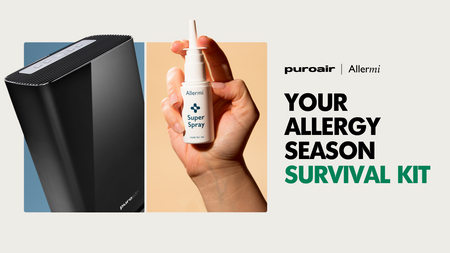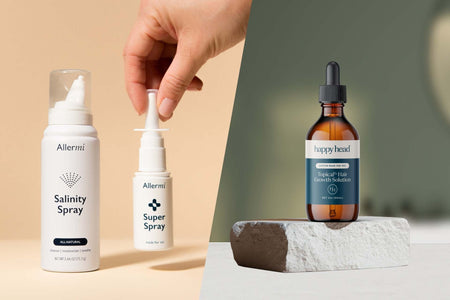Overview:
This systematic review and meta-analysis evaluated the impact of saline nasal irrigation (SNI) as an adjunctive treatment for allergic rhinitis (AR) across multiple patient groups. It focused on primary outcomes such as symptom scores, and secondary outcomes like medication use, mucociliary clearance, and quality of life.
The analysis reviewed 10 randomized controlled trials (RCTs) that met inclusion criteria, encompassing over 400 participants from both adult and pediatric populations.
The Takeaways:
-
SNI produced a 27.66% improvement in nasal symptoms (e.g., congestion, sneezing, itching, rhinorrhea).
-
Medication consumption was reduced by 62.1% among patients using SNI.
-
Mucociliary clearance improved by 31.19%, supporting nasal function and hygiene.
-
Quality of life improved by 27.88% with regular saline irrigation use.
-
Saline irrigation was well tolerated, inexpensive, and easy to use, with no evidence of adverse health effects or unexpected side effects when used daily for up to 7 weeks.
Why It Matters:
Nasal irrigation is a safe, accessible, and effective complementary treatment for allergic rhinitis. It not only improves nasal symptoms but also enhances other clinical outcomes like medication reliance, airway function, and patient quality of life. These findings support the inclusion of nasal saline as a non-pharmacologic adjunct in rhinitis management plans.
The Link to Allermi:
Allermi incorporates nasal saline irrigation as part of its multi-pronged approach to treating allergic rhinitis. This study reinforces that strategy, showing that SNI meaningfully improves outcomes while reducing dependence on medications. By pairing SNI with customized medicated sprays, Allermi offers patients more complete, evidence-based relief/
For more details, refer to the full study: Nasal irrigation as an adjunctive treatment in allergic rhinitis: A systematic review and meta-analysis








